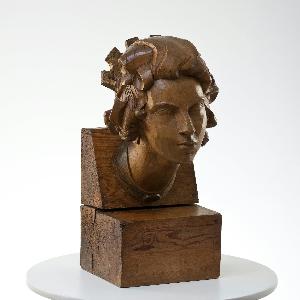Franciszek Xawery Dunikowski
Franciszek Xawery Dunikowski;Xawery Dunikowski
Place: Kraków
Born: 1875
Death: 1964
Biography:
Franciszek Xawery Dunikowski was a renowned Polish sculptor and artist, best known for his Neo-Romantic sculptures and Auschwitz-inspired art. Born on December 24, 1875, in Kraków, Poland, he died on January 26, 1964, in Warsaw, Poland.
Early Life and Education
Dunikowski's early life and education played a significant role in shaping his artistic style. He studied sculpture at the Academy of Fine Arts in Krakow, where he developed his skills and techniques. His exposure to various art movements and styles during this period influenced his unique approach to sculpture.
Artistic Career
Dunikowski's artistic career was marked by his experimentation with different materials and techniques. He is famous for his Neo-Romantic sculptures, which showcased his ability to create intricate and detailed pieces. His experience as a prisoner in Auschwitz during World War II had a profound impact on his art, leading to the creation of Auschwitz-inspired art. This series of works is a testament to his resilience and ability to find inspiration in adversity.
Notable Works and Collections
Some of Dunikowski's notable works can be found in various museums and collections, including the Wawel Royal Castle in Kraków, Poland. His Head of Zofia Kuskówna, from the series Wawel Heads, is a notable example of his sculpting skills. This piece can be viewed on Wikioo.org.
Legacy and Influence
Dunikowski's legacy extends beyond his own art. He has inspired generations of Polish artists, including Stanisław Wyspiański, who is known for his pastel paintings. Wyspiański's View of Kościuszko Mount from a Window in the Artist’s Studio can be viewed on Wikioo.org. Dunikowski's influence can also be seen in the works of other Polish artists, such as Jan Grzegorz Stanisławski, who is famous for his landscape paintings.
- Neo-Romantic sculptures: Dunikowski's unique approach to sculpture, characterized by intricate details and romantic themes.
- Auschwitz-inspired art: A series of works created in response to his experiences as a prisoner in Auschwitz during World War II.
- Wawel Heads: A series of sculptures created by Dunikowski, including Head of Zofia Kuskówna.
Dunikowski's art can be explored further on Wikioo.org, where his biography and notable works are showcased. His legacy continues to inspire artists and art enthusiasts alike, and his contributions to Polish art are undeniable.

